Related Research Articles
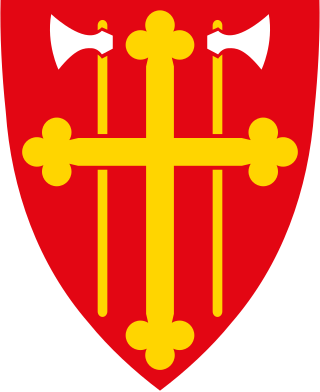
The Church of Norway is an evangelical Lutheran denomination of Protestant Christianity and by far the largest Christian church in Norway. The church became the state church of Norway around 1020, and was established as a separate church intimately integrated with the state as a result of the Lutheran reformation in Denmark–Norway which broke ties with the Holy See in 1536–1537; the King of Norway was the church's head from 1537 to 2012. Historically the church was one of the main instruments of royal power and official authority, and an important part of the state administration; local government was based on the church's parishes with significant official responsibility held by the parish priest.

The Evangelical Lutheran Free Church, or the Free Church as it is commonly known, is a nationwide Lutheran church in Norway, consisting of 83 congregations and 21,817 baptised members. It was founded in 1877 in Moss. It is distinct from the Church of Norway, although both churches are members of the Lutheran World Federation. The Free Church is economically independent.
Georg Sverdrup was a Norwegian-American Lutheran theologian and an educator.
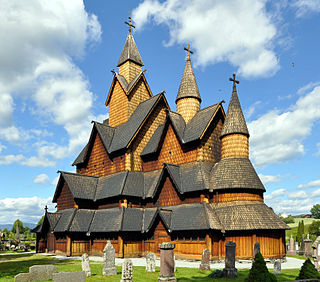
Religion in Norway is dominated by Lutheran Christianity, with 63.7% of the population belonging to the Evangelical Lutheran Church of Norway in 2022. The Catholic Church is the next largest Christian church at 3.1%. The unaffiliated make up 18.3% of the population. Islam is followed by 3.4% of the population.

Gisle Christian Johnson was a leading 19th-century Norwegian theologian and educator.
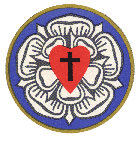
The Lutheran Church of China was a Lutheran church body in China from 1920 to 1951. It was established as a result of the consultations between the various Lutheran missionary bodies in China that was initiated during the China Centenary Missionary Conference held in Shanghai in 1907. The church survived as an organised body after the Chinese Communist Revolution but was absorbed into the state-backed Three-Self Patriotic Movement.
Anna Sofie Jakobsen, also named Anna Cheng, was a Norwegian missionary to China belonging to the Evangelical Lutheran Free Church and later with the China Inland Mission.
Johan Edvard Sverdrup was a Norwegian educator, author and church leader. Sverdrup was one of the key theologians in the Church of Norway in the first few decades of the 1900s.

The Haugean movement or Haugeanism was a Pietistic state church reform movement intended to bring new life and vitality into the Church of Norway, which had been often characterized by formalism and lethargy. The movement emphasized personal diligence, enterprise and frugality.

Johan Christian Heuch or J. C. Heuch was a Norwegian bishop in the Church of Norway and politician for the Conservative Party.

The Taiwan Lutheran Church is one of the six Lutheran bodies in Taiwan. It currently has 80 mission sites nationwide with a total of 11,422 baptized members.
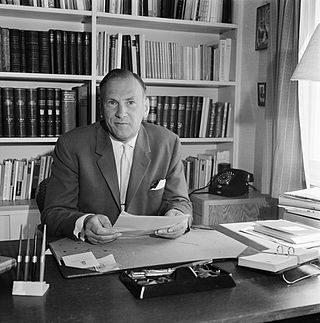
Dagfinn Hauge was a Norwegian writer and Lutheran Bishop in the Church of Norway. During the German occupation of Norway he served as priest at the Akershus Prison, where prisoners with death sentence spent their last days before execution.

Asbjørn Aavik was a Norwegian Lutheran missionary to China. He was also the author of approximately forty books.
Thorstein Himle was a Norwegian-born American missionary affiliated with the American Lutheran Hauge Synod Mission to China.

Johannes Smemo was a Norwegian theologian, psalmist, and a long-time bishop in the Church of Norway. Theologically, he was a conservative, confessional Lutheran priest who lived during the time of great liberal-conservative debates within the Church of Norway.
The Norwegian Bridge Federation founded in 1932, is the national body for bridge in Norway.
Ragnvald Andreas Indrebø was a Norwegian Lutheran Bishop. He was born in Os. He was part of the movement to translate the Norwegian Bible into the Nynorsk written language during the 1930s. He edited the periodical Luthersk Kirketidende from 1938 to 1948. He served as Bishop of the Diocese of Bjørgvin from 1948 to 1961.
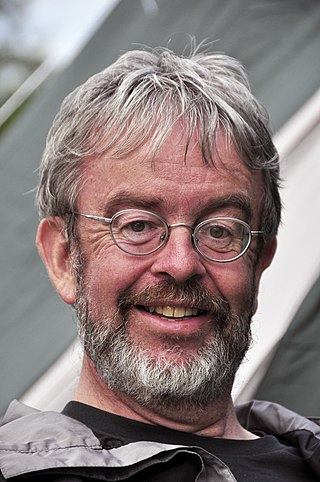
Tor Erik Jenstad is a Norwegian linguist, dictionary editor, and traditional Norwegian folk musician living in Trondheim. He was born in Sunndal in the Nordmøre district.
China Lutheran Seminary is an independent theological school, graduate school, and seminary, located in Hsinchu City, Taiwan. Founded in 1966, the seminary is Lutheran in tradition and practice.
Evangelisk Luthersk Mission – Bibeltrogna Vänner (ELM) is a Christian low-church mission organization part of the Church of Sweden, which is active in Sweden and abroad.
References
- ↑ Engelsviken, Tormod; Harbakk, Ernst; Olsen, Rolv; et al., eds. (2008). Mission to the World: Communicating the Gospel in the 21st Century. Regnum Books International. p. 47. ISBN 9781870345644 . Retrieved January 15, 2013.
On 18th-19th May 1891 the Norwegian Lutheran Federation for Mission in China (popularly called The China-federation) was constituted in Bergen. [...] The China-federation started work in other countries (as Japan and Ethiopia) and therefore changed its name to Norwegian Lutheran Mission (NLM).
- ↑ "Historical Sketch of CLS". China Lutheran Seminary.
- ↑ Norsk Luthersk Misjonssamband Store Norske Leksikon, retrieved 22 February 2012
- ↑ Ystebø, Bjarte (November 30, 2007). "Flukten fra hønsegården - Sambandet og statskirken" (in Norwegian). Norge IDAG . Retrieved January 15, 2013.
Generalsekretær Ola Tulluan sier at landets største misjonsorganisasjon, NLM, (med 50 000 medlemmer) kan komme til å gå ut av Den norske kirke.
- ↑ Døvik, Olav; Helljesen, Vilde (November 30, 2007). "Bryter med Kirken" (in Norwegian). NRK . Retrieved January 15, 2013.
- ↑ "Skoler" (in Norwegian). NLM. Retrieved January 15, 2013.
Norsk Luthersk Misjonssamband eier mange skoler, dette er grunnskoler, videregående skoler, folkehøgskoler, bibelskoler og høyskoler.